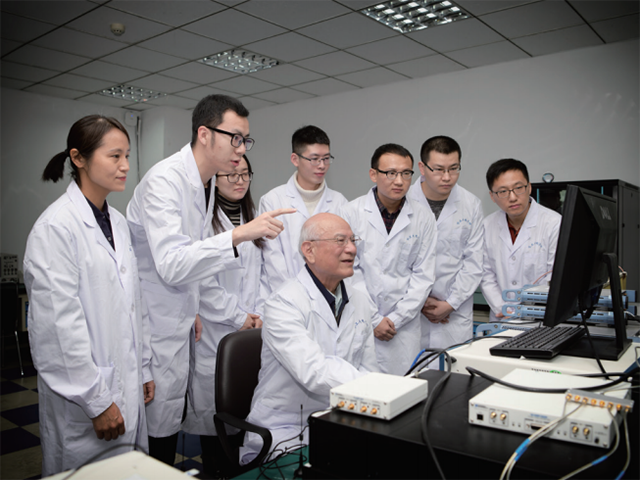HIT's Environmental Science and Engineering (ESE) discipline includes Environmental Science, Environmental Engineering, Municipal Engineering, Chemistry and Chemical Engineering, Life Science, and Energy Science and Engineering. Working his whole career at HIT, Nanqi Ren, a CAE member, an expert in wastewater treatment, and the director of the Scientific Committee of Spongy City of China leads the ESE discipline.
“ESE of HIT has 100 years of history, and continuously contributes many environmental engineering technologies to numerous fields, including wastewater treatment, solid waste disposal and recycling, drinking water safety, atmospheric pollution control, and tracking the global migration and distribution of persistent toxic substances in the atmosphere,” Ren said. “Meanwhile, we also cultivated a large quantity of high-level talent both in academic and engineering areas.” Today, ESE includes eight national research platforms and four CAE members.
“Focused on national needs in environmental protection and ecological safety, the ESE group made efforts in new innovative directions, such as ecological water remediation, bioresource and bioenergy recovery from organic wastes, the microbial electrochemical system, and water chemistry,” said Yujie Feng, executive dean of HIT’s School of Environment.
In addition to its work in environmental-protection technologies, ESE members serve as national consultants. For example, Ren developed methods of water remediation, and Jun Ma, member of CAE, focuses on drinking water safety.
Established in the 1930s, the Chemistry and Chemical Engineering group, says leader Yudong Huang, studies many topics, including “resource recovery from agricultural and municipal solid wastes.” The leader of the clean combustion group Yukun Qin, CAE member, added that his group works on “low-cost solutions for improving the air quality and affordable energy for sustainable development in China.”
For life and environmental science, this HIT group includes facilities for cryo-electron microscopy, mass spectrometry, and other technologies. Zhiwei Huang, HIT leader in this area, points out, these scientists focus on areas such as the “molecular mechanisms of viruses or the metagenome of environmental microorganisms.”

Professor Yongtan Liu is with young teachers and students.


